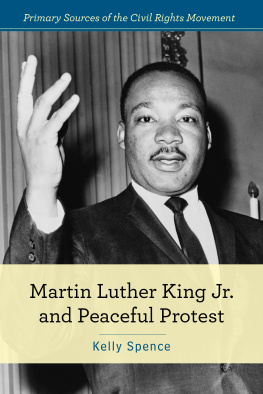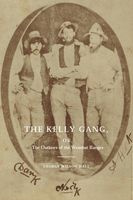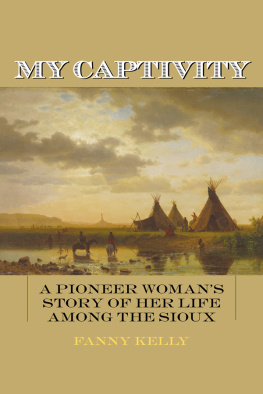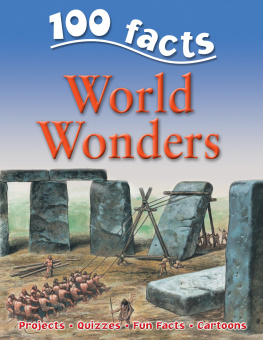
This edition is published by PICKLE PARTNERS PUBLISHINGwww.picklepartnerspublishing.com
To join our mailing list for new titles or for issues with our books picklepublishing@gmail.com
Or on Facebook
Text originally published in 1926 under the same title.
Pickle Partners Publishing 2015, all rights reserved. No part of this publication may be reproduced, stored in a retrieval system or transmitted by any means, electrical, mechanical or otherwise without the written permission of the copyright holder.
Publishers Note
Although in most cases we have retained the Authors original spelling and grammar to authentically reproduce the work of the Author and the original intent of such material, some additional notes and clarifications have been added for the modern readers benefit.
We have also made every effort to include all maps and illustrations of the original edition the limitations of formatting do not allow of including larger maps, we will upload as many of these maps as possible.
Yellowstone Kelly
The Memoirs of Luther S. Kelly
EDITED BY M. M. QUAIFE
WITH A FOREWORD BY
LIEUTENANT-GENERAL NELSON A. MILES, U. S. A.
YELLOWSTONE KELLY
IN 1878
TABLE OF CONTENTS
Contents
TABLE OF CONTENTS
REQUEST FROM THE PUBLISHER
HISTORICAL INTRODUCTION
TO Americans of whatever generation the land of opportunity and of adventure has always lain along the western frontier of settlement and civilization. Today, the frontier has disappeared from America and the process of idealizing it in myth and romance has long since begun. With sure commercial instinct for that which appeals most powerfully to the public, the moving picture industry has exploited unceasingly the theme of the frontier, and in the world of the silver screen the western disputes with the eternal theme of romantic love for primacy in the hearts of the multitude. Nor does this popular estimate of the importance which attaches to the subject of frontier life and adventure differ materially from the judgment of scholarship. For a generation the historians have been engaged in exploiting the story of the frontier in American history, and there is today practically unanimous acceptance, among scholars, of the view with which the career of Professor Turner is so intimately bound up, that to the existence and influence of the frontier we owe those things which chiefly distinguish American institutions and character from those of the Old World.
In the narrative of Yellowstone Kelly we have a rare story of adventure and service. General Miles, who knew him long and intimately, fitly compares him with such heroes of the American wilderness as Daniel Boone and David Crockett. We think of these men as the products of a bygone age and environment, as indeed they were. Yet Mr. Kelly still lives in his California home, a witness of the mechanical marvels and the material progress which mark the third decade of the twentieth century. Like Boone, he is a lover of solitude and of the wilderness; unlike Boone, he has had the desire to preserve for posterity the story of the life he loved, and the education and literary capacity requisite to the task. His story is at once an important contribution to the history of the western frontier in the decades to which it pertains and a thrilling tale of sustained adventure whose perusal should bring delight to every normal man or boy.
In editing the narrative my principal task has been one of condensation. The manuscript as originally prepared by Mr. Kelly was much longer than the contents of the present volume. In preparing it for the press I have freely altered the construction of sentences and paragraphs, and have deleted unessential details. But the story, as printed, remains the authors own; his are the ideas and the statements of fact or opinion, and his also the manner of expressing them, which seems to me in essence profoundly poetic.
M. M. QUAIFE
Burton Historical Collection, Detroit.
ILLUSTRATIONS
Yellowstone Kelly in 1878
Luther S. Kelly as a Private, 1865
Pictograph (1868), copied from an Indian Buffalo Robe
Kellys Duel with Two Sioux Warriors
Ed Lambert, John George Brown, and Yellowstone Kelly
Sitting Bull
Rain-in-the-Face
Does the wasityu hold the road against the Yankton?
Yellowstone Kelly on the Bank of the Missouri
Kelly and Sandy Morris Meet a Yankton War Party
Yellowstone Kellys Map
General Miles and Staff in Winter Garb, 1875-76
Buffalo Horn, Bannock Indian Scout
John Brughier, Half-blood Sioux Guide and Interpreter
Liver-eating Johnson, Indian Fighter and Scout
General Nelson A. Miles in 1877
Chief Joseph, Nez Perc
Yellowstone Kelly, The-Little-Man-with-a-Strong-Heart
Chief White Bull
Kicking Bear
Ute Indians Encamped near Bear River
FOREWORD
DURING the transformation of the Great West from wild prairies and mountain waste to peaceful settled communities and states, a series of wars occurred between the white race and the hostile Indians in which very conspicuous and heroic characters appeared. At that time that vast country was roamed over by strong tribes of hostile Indians, and millions of buffalo, wild horses, bear, wolves, elk, antelope, and deer.
The nomadic Indians in time had to give place to the home-builders, who developed the vast treasures of agricultural and mineral wealth that have made our republic prosperous and great. Now the railroads and telegraph lines have taken the place of the Indian trails, and millions of domestic stock have replaced the wild beasts. The music of peace and happiness is now heard where the tom-tom and the battle cry were formerly the signal for savage warfare.
During that exciting and eventful period there appeared a most interesting character, equally as fearless, intelligent, and resourceful as Daniel Boone, David Crockett, Kit Carson, or William F. Cody. His name was Luther S. Kelly but he was better known as Yellowstone Kelly. He loved the romance of the frontier and seemed to appreciate and enjoy the beauty and grandeur of nature in the highest degree. Yellowstone Kelly was of good family, well-educated and fond of good books, as quiet and gentle as he was brave, as kind and generous as he was forceful, a great hunter and an expert rifleman; he explored that extensive northwest country years before serious hostilities occurred and acquired a knowledge of its topography, climate, and resources that was exceedingly valuable.
My first acquaintance with Yellowstone Kelly was when campaigning against hostile Indians in Montana, North Dakota, and Wyoming. He came from the valley of the Yellowstone entirely alone to my camp on the banks of that river, near the mouth of the Tongue River. He had recently killed a large bear and cut off one of its huge paws, and upon this he inscribed his name and sent it to my tent, as he had no cards at the time! In return I sent for him, and found him a most interesting character and soon engaged his services. At that time he was young and strong, a fine horseman, as supple as a panther, with an eye like the eagle. His knowledge of that unmapped region was most valuable, and as a guide and leader of the scouts and advance guard he was exceedingly useful. His knowledge of the Indians, their habits, and hunting grounds was always reliable.















